The Publisher after 1945
Next Stop: A Company of International Standing
Reconstruction began immediately after the end of the war. Before the publishing licence was reissued in January 1946 and the first printing press began to work shortly afterwards once more, the employees who had returned home rebuilt their publishing house with their own hands, sometimes under adventurous conditions. Once the continued existence of the publishing house was secured, the “great undertakings”, as Vötterle called them, could be tackled.

Flagship of the Bärenreiter Complete Editions: The “New Bach Edition” (1954–2007)
“The Great Undertakings”
The end of the war also meant the end of a fixation on Germany. An example of a much-acclaimed international publishing project is the MGG, the music encyclopaedia Die Musik in Geschichte und Gegenwart. After lengthy preparatory work, the first volume was sent out to subscribers in June 1949. Due to the phenomenal wealth of information which was accrued, the work had to be expanded several times before it was completed in 1987 after 17 volumes.
The publisher earned an equally great reputation for the publication of scholarly-critical Complete Editions. With the Gluck Complete Edition (from 1951), Georg Philipp Telemann,Musical Works (from 1953), the New Bach Edition (1954-2007), the New Mozart Edition (1955-2007), the Halle Handel Edition (from 1955), the New Schütz Edition (from 1955), the New Schubert Edition (from 1964) and the New Berlioz Edition (1967-2006), Bärenreiter succeeded in providing music volumes of a high editorial standard for performers and scholars alike. Further editions were added; Franz Berwald, Niels Wilhelm Gade, Leoš Janáček, Leonhard Lechner, Orlando di Lasso, Jean-Philippe Rameau, Sergei Rachmaninoff, Gioachino Rossini and Giuseppe Tartini.
Commitment to Contemporary Music
With the end of the war, the politically imposed barriers in the arts fell. For Bärenreiter, this also provided the opportunity to focus more strongly on contemporary music. The number of premieres of published works increased, including numerous sensational musical events, e.g. Ernst Krenek, Lamentatio Jeremiae Prophetae (1958), Bohuslav Martinů, Rhapsody-Concerto for Viola and Orchestra (1953), Bernd Alois Zimmermann, Musique pour les soupers du Roi Ubu (1966), Klaus Huber, Soliloquia. Oratorio (1962/1964), Giselher Klebe, Der jüngste Tag (1982), Matthias Pintscher, Thomas Chatterton (1998), Beat Furrer, FAMA (2005), Manfred Trojahn, Orest (2011), Miroslav Srnka, South Pole (2016), Dieter Ammann, The Piano Concerto (Gran Toccata) (2019), Andreas Lorenzo Scartazzini, a cycle of orchestral pieces to Gustav Mahler’s nine symphonies (2018-2025) and many others.
For decades, Bärenreiter has lived up to its commitment to publish and promote not only the music of the past but also that of the present.
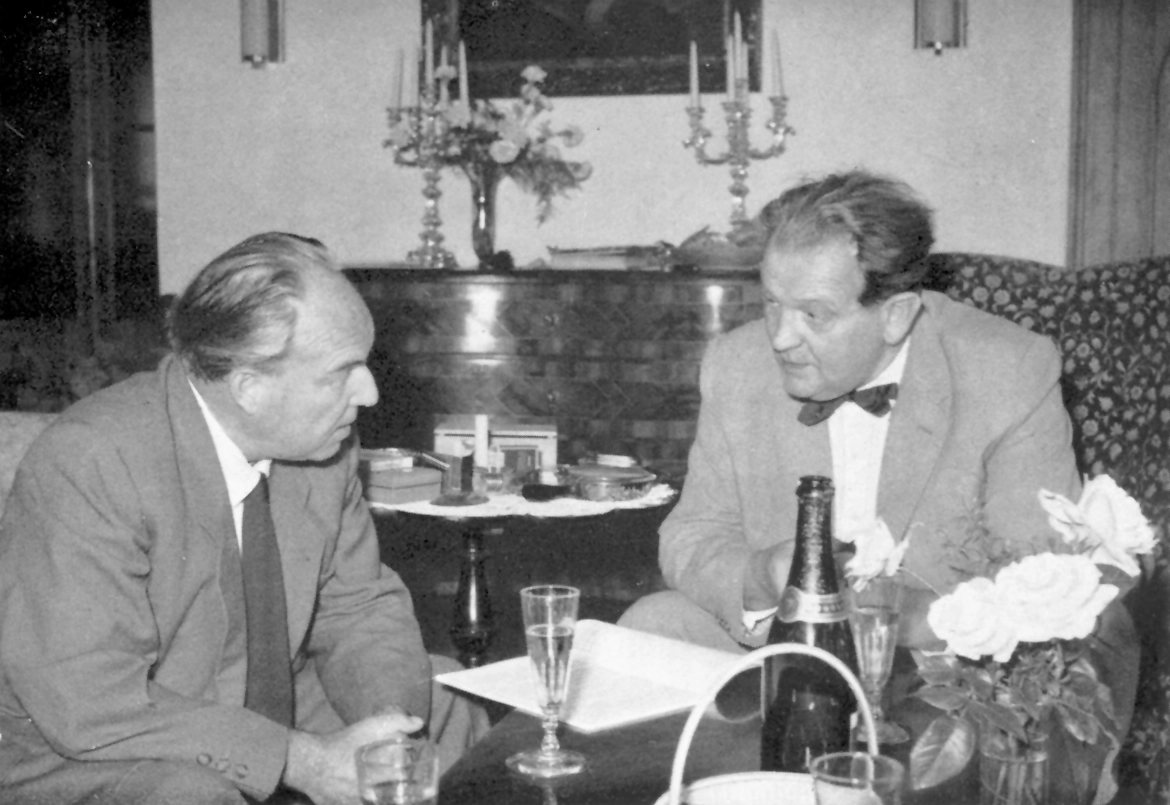
Karl Vötterle and Ernst Krenek, 1958

Spectacular world premiere: Miroslva Srnka‘s opera “South Pole” at the Bayerische Staatsoper München in 2016 (Photo: Wilfried Hösl)
Expansion
From the 1950s onwards, all the signs pointed to expansion, which was also reflected in takeovers and the founding of new subsidiaries. Among the companies that found continuity and new perspectives under the umbrella of the growing Bärenreiter publishing group were Nagels-Verlag (1952), Alkor-Edition (formerly Bruckner-Verlag, 1955), Gustav Bosse Verlag (1957) and Henschel Musik (1991). Starting with Basel –- founded in 1944 as a possible alternative location to Kassel –- there were foreign subsidiaries in New York (1958), Paris (1962, from 1971-1980 in Tours) and London (1963). Editio Bärenreiter Praha (EBP) followed in 1998. After an arduous privatisation process, this company was separated from the former Czech state-owned publisher Supraphon. Today, close to twenty employees work in Prague and primarily focus on the rich heritage of Czech music. In addition, Bärenreiter Praha (BP) represents Bärenreiter as a sales and distribution centre for Eastern European territories.
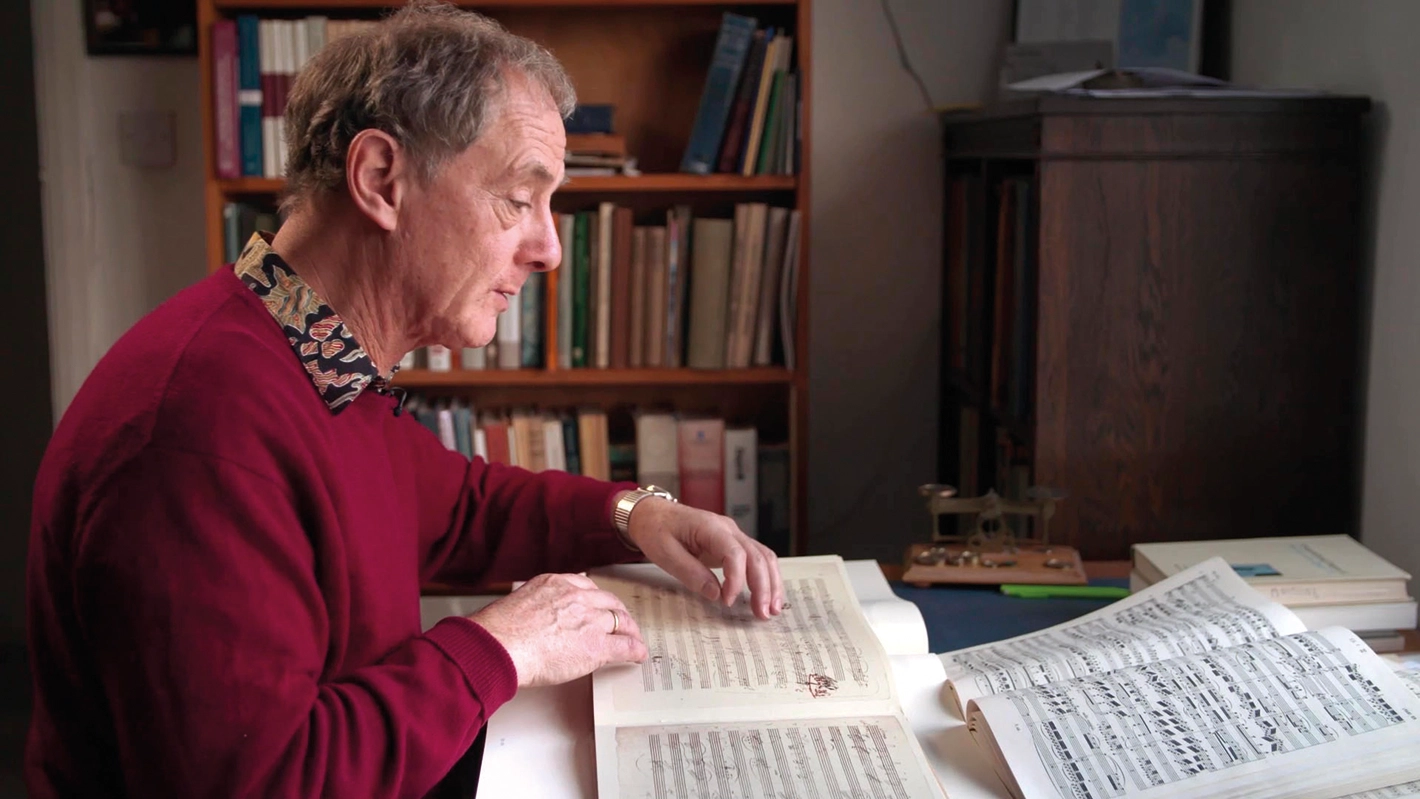
Beethoven at Bärenreiter: inconceivable without Jonathan Del Mar who illuminates the smallest detail
The music book catalogue gained in quantity and quality. In addition to special studies in musicology, the catalogue includes study books, reference works, biographies and accessible introductions to music works. Despite the digital revolution, Bärenreiter ventured to publish a second edition of the MGG music encyclopaedia: the 29-volume work was published between 1994 and 2008, covering all areas of music far beyond classical music based on the latest scholarly findings.
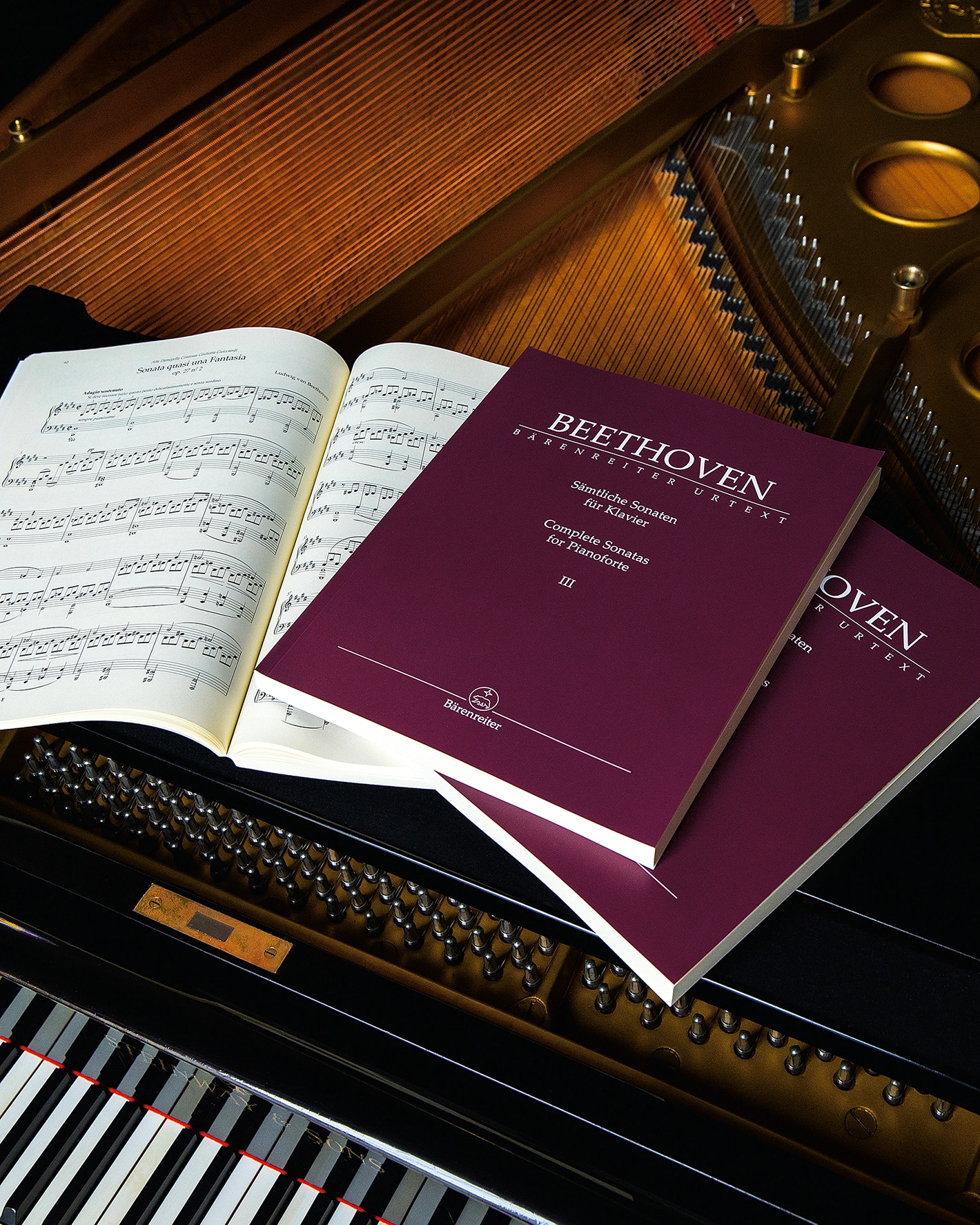
The performing edition of the Beethoven Piano Sonatas, recognised by performers all over the world
One of the new objectives in recent years has been the expansion of the sheet music catalogue. Until well into the 1990s, predominantly the works of composers of the Bärenreiter Complete Editions were made available in Urtext performing editions. Now the trend is to be able to offer as broad a spectrum as possible from the classical-romantic repertoire up to the early 20th century. The opening up of the catalogue began in 1996 with the Urtext edition of Ludwig van Beethoven’s nine symphonies edited by the British musicologist Jonathan Del Mar. This was followed by editions of works by Brahms, Chopin, Debussy, Elgar, Grieg, Ravel, Satie, Scriabin, Smetana, Vivaldi and many others.
The newly established “Bärenreiter Urtext” label ensured the high standard and quality of the editions and created a clearly recognisable look.
Great efforts were also made in the field of opera. The successive publication of stage works by Handel and Rameau offers theatres all over the world the opportunity to expand their repertoire. Previously rarely performed works from the Romantic opera repertoire, such as Halévy’s La Juive, have also been performed on a regular basis.
Outdated editions of operas such as Bizet’s Carmen, Dvořák’s Rusalka or Gounod’s Faust have been replaced by editions based on modern source evaluation.
Outdated editions of operas such as Bizet’s Carmen, Dvořák’s Rusalka or Gounod’s Faust have been replaced by editions based on modern source evaluation.
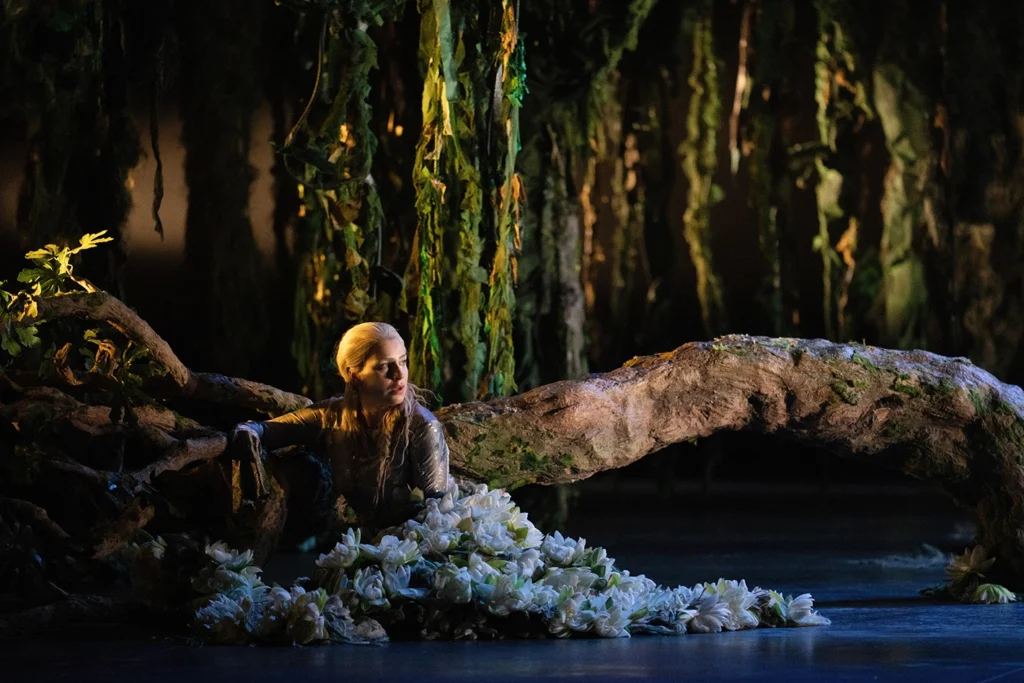
Czech “national” opera: Antonín Dvořak’s “Rusalka” at the Royal Opera House (London) in 2023 with Asmik Grigorian in the main role. Based on Bärenreiter Praha’s new edition. (Photo: Camilla Greenwell)
Generation Change
Karl Vötterle, who managed his publishing house for 52 years, died in 1975. He was succeeded by his daughter Barbara Scheuch-Vötterle and her husband Leonhard Scheuch, who were able to build on the company’s already existent worldwide reputation. Despite the established market position, there was no shortage of challenges. Concentrating on the publishing house’s core competencies was one of them. All programme areas not related to music were relinquished or sold. The in-house printing facilities were also closed.
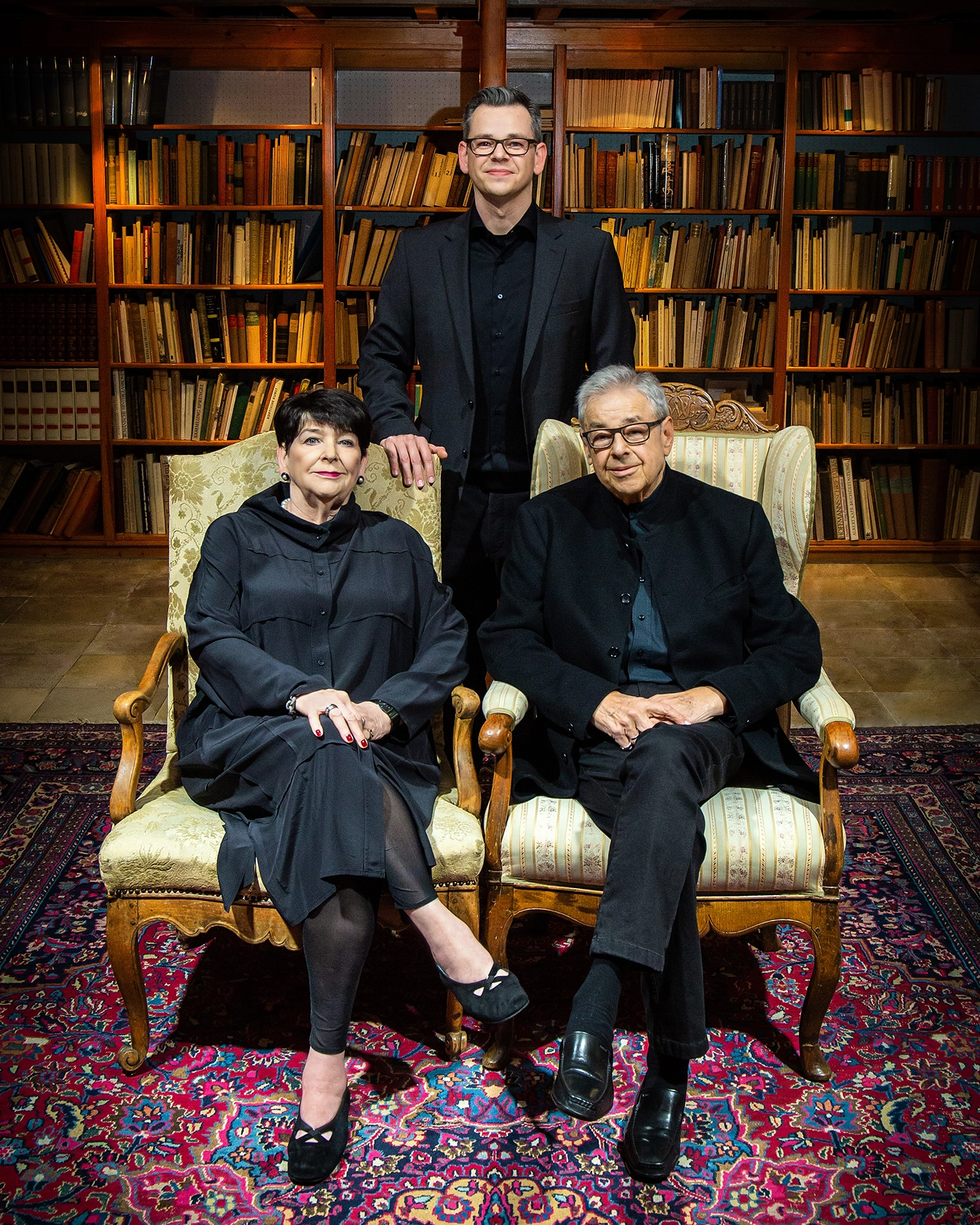
Triumvirate: Barbara, Leonhard and Clemens Scheuch, 2023
The next generational change went very smoothly. In 2021, Clemens Scheuch joined his parents as the third managing director of Bärenreiter. From 2023-2024, the publisher celebrated its 100th anniversary. The small Augsburg living room start-up has long since become an internationally-recognised company in the field of music, whose music editions are used from Cape Town to Oslo, from Buenos Aires to Tokyo, from Los Angeles to Sydney.
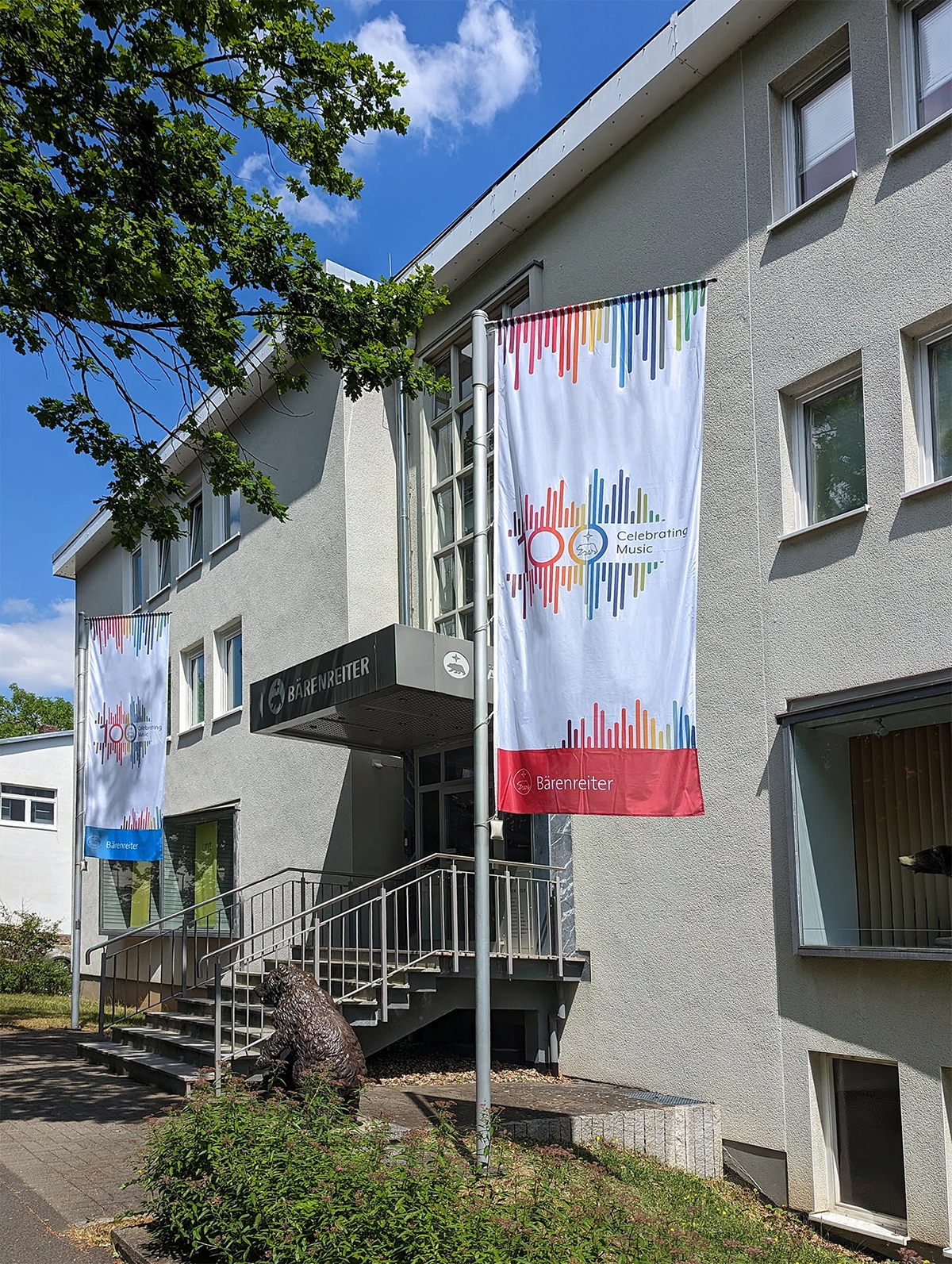
Fresh impetus: The company building during the 2023 100th anniversary year